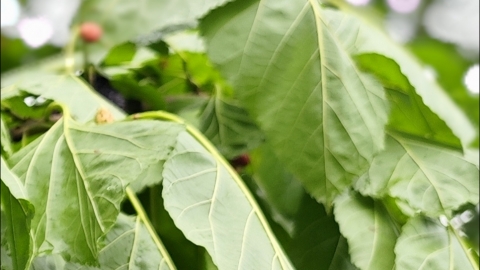Can mulberry leaves be steeped in water for drinking?
Generally speaking, mulberry leaves can be steeped in water for consumption, but it is important to drink them in moderation. A detailed explanation is as follows:

Mulberry leaves are cold in nature and have a sweet and bitter taste. Drinking mulberry leaf tea can effectively alleviate symptoms such as the common cold, headache, and cough caused by external wind-heat, helping to dispel wind-heat from the body. Mulberry leaves act on the liver meridian, offering the benefits of clearing the liver and improving vision. Drinking mulberry leaf tea in moderation can help relieve symptoms such as dry and tired eyes, as well as red, swollen, and painful eyes caused by excessive liver fire. Mulberry leaves also affect the lung meridian, clearing heat and moistening dryness in the lungs. They can help alleviate symptoms such as dry cough, minimal phlegm, and dry throat caused by lung damage due to heat and dryness.
The dietary fiber in mulberry leaves helps promote intestinal motility and improves digestive function. Drinking mulberry leaf tea in moderation can aid in relieving digestive discomforts such as constipation and bloating. However, it is important to consume it in moderation, as excessive intake may cause gastrointestinal discomfort, such as abdominal pain, diarrhea, bloating, or nausea.
Mulberry leaves are relatively cold in nature, so individuals with a cold constitution or those suffering from spleen and stomach deficiency-cold should consume them sparingly or avoid them altogether to prevent aggravating internal coldness, which may lead to discomforts such as abdominal pain and diarrhea. Women should also avoid drinking mulberry leaf tea during their menstrual period to prevent the occurrence of dysmenorrhea. Additionally, mulberry leaf tea should not be consumed together with cold or spicy foods, as this may reduce its effectiveness or cause gastrointestinal discomfort.







